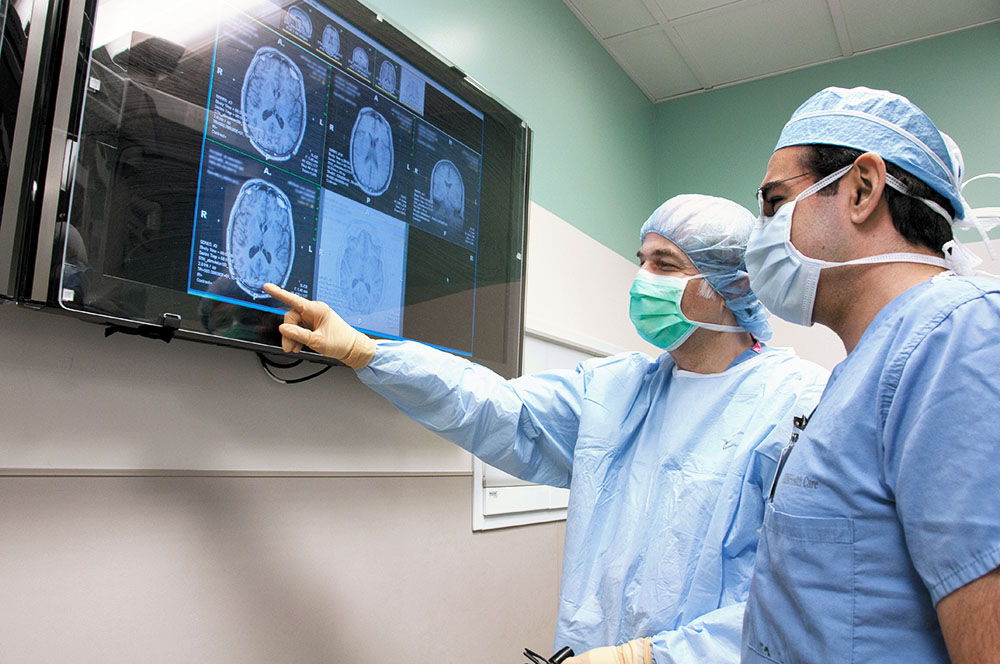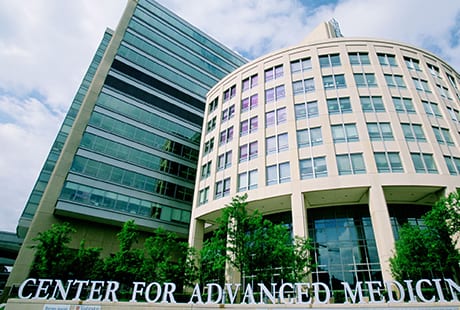Call 314-362-3577 for Adult Appointments
What is neurological pain?
Damaged nerves to the brain can cause a number of intense pain conditions including trigeminal neuralgia, hemifacial spasm and glossopharyngeal neuralgia.
Trigeminal neuralgia
This chronic pain condition affects the trigeminal nerve, or fifth cranial nerve, which carries sensation from your face to your brain. If you have trigeminal neuralgia, even mild stimulation of your face — such as from brushing your teeth or putting on makeup — may trigger shock-like pain.
Hemifacial spasm
This condition is a nervous system disorder in which the muscles on one side of your face involuntarily. It is most often caused by a blood vessel touching a facial nerve but it may be caused by a facial nerve injury or a tumor, or it may not have a cause.
Glossopharyngeal neuralgia
This condition causes extreme pain in the back of the throat, tongue or ear. Attacks of intense, electric shock-like pain can occur without warning or can be triggered by swallowing. Although the exact cause is not known, a blood vessel is often found compressing the nerve inside the skull.
Neurological pain treatment
Pain treatment usually starts with medications, and some people don’t need any additional treatment. However, over time, some people with the condition may stop responding to medications, or they may experience unpleasant side effects. For those people, injections or surgery provide other treatment options.
If your condition is due to another cause, our experts will treat the underlying condition.


